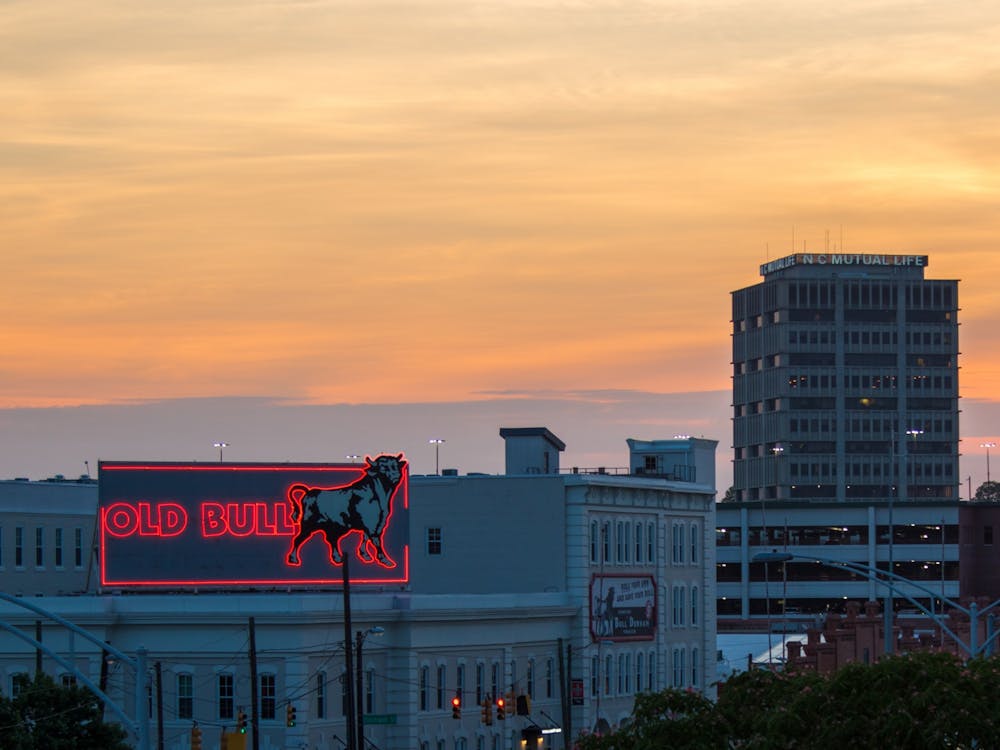Incumbents carried the day in Durham elections—but less than a fifth of eligible voters participated.
Mayor Steve Schewel, Trinity ‘73 and Ph.D. ‘82, and city council members Jillian Johnson, Charlie Reece and Javiera Caballero each won reelection, and voters approved a $95 million affordable housing bond. Only 18.32% of eligible Durham voters voted in Tuesday’s municipal elections, according to the North Carolina State Board of Elections.
Thousands of Durham residents to receive housing assistance
One of the major issues in the mayoral and city council races was the affordable housing bond. The bond passed with the approval of 75.89% of those who voted.
The bond’s goal is to build 1,600 new units of affordable housing, which would assist 15,000 Durhamites, according to the bond’s website. The $95 million in required funding will be sourced from the community by increasing property tax by 1.6 cents.
The other elections of the day demonstrated the community’s commitment to the bond. Johnson, Reece and Caballero all supported the bond, and Schewel was the one who originally proposed it as part of a five-year, $16 million affordable housing plan.
The bond is set to follow the Expanding Housing Choices ordinance passed in September 2019, which authorized the construction of more housing units near downtown.
Schewel wins in a landslide
Incumbent Schewel decisively defeated three-time mayoral candidate Sylvester Williams—running for his fourth time—receiving 83.4% of the vote.
Schewel ran for his second term on a platform centered around continuing his work to provide affordable housing to Durham residents, mainly through the housing bond. In addition, he aims to expand and improve public transportation.
Schewel plans to cultivate stronger relationships between citizens of Durham and law enforcement to build a safer and more inclusive Durham. Beyond the immediate scope of Durham, Schewel has worked to tackle climate change by emphasizing cities’ role and diverting more recyclable materials from landfills.
Williams, who serves as a pastor for The Assembly at Durham Christian Center, garnered 15.89% of the vote. Although Williams’ platform also focused on affordable housing, his religious beliefs influenced a firm opposition to controversial issues such as abortion, same-sex marriage and evolution being taught in schools.
The Bull City stays together
Johnson, Reece and Caballero teamed up to run as “Bull City Together,” releasing a joint policy platform. They prioritized housing access and affordability, community safety and sustainability, inclusive economic development and democratic community engagement.
Bull City Together received several endorsements, including from the People’s Alliance PAC, the Durham Association of Educators and IndyWeek. However, they were criticized for a June vote to raise wages of part-time city employees rather than expand the police force.
In the end, the three carried the day, earning 20.64%, 20.33% and 19.78% of the vote, respectively.
Challenger and local rapper Joshua Gunn narrowly missed winning a seat, falling fewer than 400 votes behind Caballero with 19.37% of the vote. Gunn, who is the vice president of member development at the Greater Durham Chamber of Commerce and sits on the Board of Directors for the Durham Public Schools Foundation, is a founder of the Black August in the Park Festival and a strategic partner at “co-working and creative workplace” Provident1898.
Criminal defense attorney Daniel Meier and former city council member Jacqueline Wagstaff won 9.81% and 9.72% of the vote, respectively, finishing fifth and sixth.
Correction: Jillian Johnson's name was misspelled as Julian Johnson in an earlier version of this article. The Chronicle regrets the error.
Get The Chronicle straight to your inbox
Sign up for our weekly newsletter. Cancel at any time.
Matthew Griffin was editor-in-chief of The Chronicle's 116th volume.

Maria Morrison was a digital strategy director for The Chronicle's 117th volume. She was previously managing editor for Volume 116.

